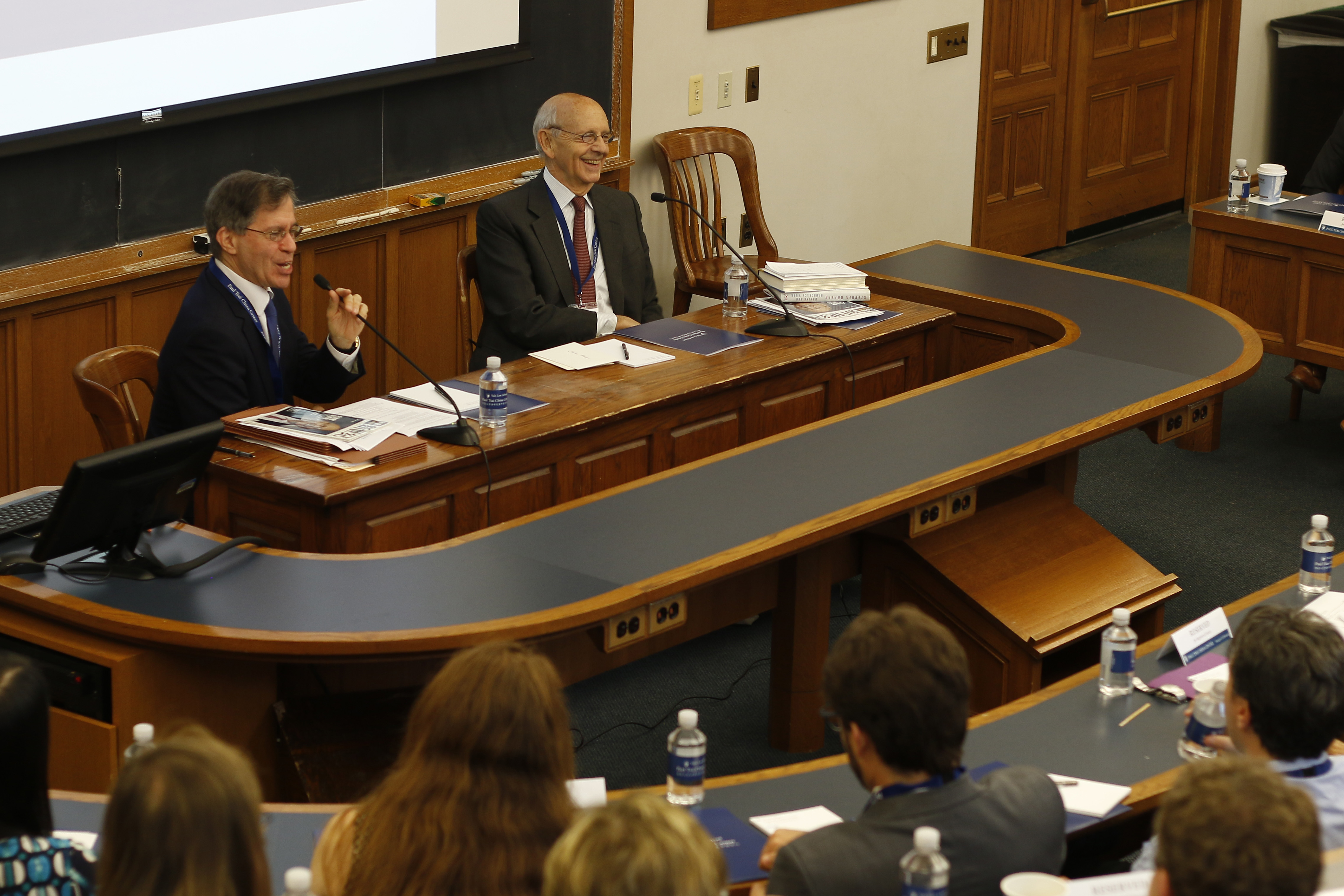
Supreme Court Justice Stephen Breyer brandished a copy of the U.S. Constitution, paraphrased Alexander Hamilton’s Federalist Paper No. 78 and affirmed the role of the judiciary in front of his 130-strong audience at Yale Law School Friday morning.
The Friday discussion is a part of the Inaugural Celebration of the Paul Tsai China Center, the hub of all China-related enterprise at the Law School. Breyer — who traveled with the center in a 2001 trip to China for a workshop on regulatory reform and who has written books relating the Supreme Court to the rest of the world — centered his Friday discussion on the rule of law, the relationship between trust and the court and the value of conversation in creating change.
Breyer said throughout his interaction with members of the Chinese judiciary, which has been criticized in the past for its lack of independence, he learned that those officials are in fact interested in establishing the rule of law in the country.
“Sure we have written a beautiful document, but if nobody follows it we might as well hang it up in a museum,” Breyer said while holding up a copy of the Constitution. “How will we get people to follow it? Somebody has to have the last word as to when the government officials are violating the boundary rules that are here.”
Elaborating on the weakness and the power of the Supreme Court, Breyer referenced two court cases. In the first one, the 1832 decision in Worcester v. Georgia, the Supreme Court ruled that individual states had no authority over American Indian affairs — that is, states could not force tribes off of their land. Citing former U.S. President Andrew Jackson’s supposed response to the decision, Breyer highlighted that in reality, courts have no power, as Jackson ultimately chose to forcibly remove Native American tribes from their lands.
In the other case, Bush v. Gore — the infamous 2000 ruling that handed George W. Bush ’68 the presidency — Breyer called the outcome “probably one of the least popular decisions” in the history of the Supreme Court, with at least half of the country thinking it was a wrong decision.
“Well, maybe a little more than half. In any case, it was not popular,” Breyer said. “I thought [the ruling] was wrong. I was in the dissent, but people followed it.”
He added that in establishing the rule of law, it has taken a long time and that the rule of law is there “on a precipice.”
In his discussion about the trust between people and the Supreme Court, Breyer recounted an exchange between him and Georgina Wood, the chief justice of Ghana, on her visit to Breyer’s office in Washington, D.C., several years ago. Wood intended to ask advice on how to improve her country’s court system and ensure protection of basic human rights and democracy.
“Why do people do what we say?” Breyer recalled Wood asking, to which Breyer responded “That’s the question.” Breyer told the Ghanaian chief justice the process of building trust between the country and the court “is slow.”
In the question-and-answer session, Breyer extolled the values of civic participation. He also called the Constitution a boundary document that tells the government what is not allowed, but not what is, and warned against cynicism and distrust toward government institutions.
Participants interviewed cited a variety of answers when asked for their opinions on the talk. Arka Gupta ’20 said he would have regretted missing Breyer’s talk when one of the leading legal minds has come “within two football fields” of him.
Ken Yang, an exchange student from Columbia Law School, came to the talk because he wanted to see how Breyer would make the case for embracing or rejecting international legal norms.
Blake Neal LAW ’19 said he was fascinated by the anecdotes that Justice Breyer used to communicate the value of trust in following the rule of law.
Breyer said although no one has the authority to predict the future of U.S.-China relations, the China Center brings together funding, scholars and judges and provides a space for conversations.
“We talk — out of that, grows something,” Breyer said. “Not always, but much of the time.”







